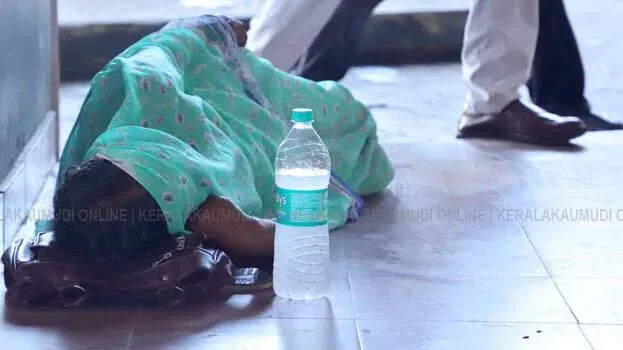

NEW DELHI: The Center has issued guidelines taking into account the rising temperature in various states. The union health ministry secretary has sent letter to the states. The letter states that steps should be taken at the district level to deal with heat-related problems, precautionary measures should be taken by the Indian Meteorological Department, awareness should be continued, availability of medicines should be ensured, the fire department should continue strict inspections, health workers should be given proper training, and the weather reports of the Center should be examined.
State Disaster Management Authority has issued cautionary directions for the public
High heat can cause many serious health problems including sunstroke, heatstroke, and dehydration. Therefore, the public should follow the following instructions.
• Avoid direct sunlight on the body for a long time between 11 am and 3 pm.
• Drink clean water as much as possible. Continue drinking water even if you are not thirsty.
• Avoid alcohol, coffee, tea, carbonated soft drinks, etc., which cause dehydration during the day.
• Wear loose, light-colored cotton clothes.
• Wear footwear when going out. It is better to use an umbrella or a hat.
• Eat plenty of fruits and vegetables. Encourage the use of ORS solution, butter milk etc.
• There is a high possibility of fires increasing and spreading in places like markets, buildings, waste collection and disposal centers (dumping yards). Fire audits should be conducted and proper safety precautions should be taken. Those living near these and those running establishments should be especially vigilant.
• There is a possibility of forest fires spreading in cases of excessive heat. Those living near forest areas and tourists should be especially vigilant. Situations that may cause forest fires should be avoided. The instructions of the Forest Department should be strictly followed.
• Clean drinking water should be ensured for students in educational institutions and ventilation should be ensured in classrooms. During examination time, water availability should also be ensured in the examination halls.
• School authorities and parents should take special care of students. Assemblies and other programs that expose children to excessive heat should be avoided or timed accordingly. Schools that take children on excursions should ensure that children are not exposed to direct heat from 11 am to 3 pm.
• The respective panchayat authorities and anganwadi staff should take special care to implement a system that prevents children from being exposed to heat in anganwadi.
• Bedridden patients, elderly people, pregnant women, children, differently-abled people, and those suffering from other diseases should take special care to avoid direct exposure to sunlight from 11 am to 3 pm. Special care should be taken in the case of such groups as they are prone to sunstroke.
• The respective institutions should ensure that those who deliver food online on two-wheelers are safe during the afternoon (from 11 am to 3 pm). They should be instructed to dress in a way that will protect them from the heat and, if necessary, be allowed to rest for a while during the journey.
• Media workers and police officers should use umbrellas during this time (from 11 am to 3 pm) and be careful not to be exposed to direct sunlight. Provide drinking water to the officers involved in the work to prevent dehydration.
• While organizing public programs and conferences, organizers should ensure that sufficient drinking water and shade are available to the participants. Avoid conferences from 11 am to 3 pm if possible.
• It is better for those who are traveling to continue their journey with sufficient rest. Keep water in hand.
• Construction workers, agricultural workers, street vendors, and those engaged in any other strenuous work should adjust their working hours. Ensure adequate rest during work.
• Avoid leaving livestock to graze in the midday sun and tying up other domestic animals in the sun. Ensure availability of water for animals and birds.
• Do not leave children or pets in parked vehicles.
• Take steps to use water sparingly and store as much water as possible during rains. Always carry a small bottle of drinking water with you to prevent dehydration.
• If you feel unwell, rest immediately and seek medical attention.
• Listen to and obey official warnings from the Meteorological Department and the Disaster Management Authority.